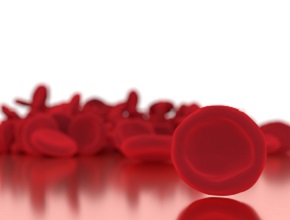Olokizumab versus placebo or adalimumab in rheumatoid arthritis
Background: Interleukin 6 (IL-6) is a cytokine involved in the pathogenesis of many autoimmune and inflammatory diseases. In patients with rheumatoid arthritis (RA), IL-6 is expressed in synovial tissues; it is involved in the upregulation of endothelial adhesion molecule expression as well as in osteoclast maturation and can promote bone erosion. Olokizumab is one of several humanized monoclonal antibodies that target IL-6. In this study it was assessed for the treatment of RA.
Methods: This was a 24-week, placebo-controlled and active treatment–controlled trial involving patients with RA who had an inadequate response to methotrexate. They were randomly allocated in a 2-2-2-1 ratio to receive olokizumab 64 mg subcutaneously every 2 or 4 weeks, adalimumab 40 mg every 2 weeks, or placebo, with all patients continuing methotrexate. The primary end point was an American College of Rheumatology 20 (ACR20) response (≥20% fewer tender and swollen joints and ≥20% improvement in 3 of 5 other domains) after 12 weeks of treatment.
Results: In total, 464 patients received olokizumab every 2 weeks, 479 received olokizumab every 4 weeks, 462 received adalimumab, and 243 received placebo. After 12 weeks of treatment, an ACR20 response occurred in 44.4% of patients on placebo, in 70.3% on olokizumab every 2 weeks (difference vs placebo, 25.9 percentage points; 97.5% CI, 17.1-34.1), in 71.4% on olokizumab every 4 weeks (difference vs placebo, 27.0 percentage points; 97.5% CI, 18.3-35.2), and in 66.9% receiving adalimumab (difference vs placebo, 22.5 percentage points; 95% CI, 14.8-29.8). Both doses of olokizumab were noninferior to adalimumab. Adverse events occurred in ~70% of patients on olokizumab versus 65% on adalimumab and 63% on placebo (most commonly infections, which were equally prevalent among groups). Antibodies against olokizumab developed in 3.8% of patients taking the drug every 2 weeks and in 5.1% of those taking it every 4 weeks.
Conclusions: The authors concluded that in patients with RA who had an inadequate response despite methotrexate treatment adding olokizumab for symptom improvement was superior to placebo and noninferior to adalimumab. They also stressed the need for additional larger studies with longer (>24 weeks) patient follow-up to determine the long-term efficacy and safety of olokizumab in patients with RA.
McMaster editors’ commentary: In patients with RA, disease-modifying antirheumatic drug (DMARD) therapy is anchored on methotrexate, sometimes in combination with sulfasalazine or hydroxychloroquine (or both), and most patients will respond to such treatment. In a minority of patients, biologic therapy options include the pyrimidine synthesis inhibitor leflunomide, tissue necrosis factor inhibitors (etanercept, adalimumab), and Janus kinase inhibitors (tofacitinib, baricitinib, upadacitinib). The present trial is important because it provides a head-to-head comparison of different DMARD strategies.
 English
English
 Español
Español
 українська
українська










